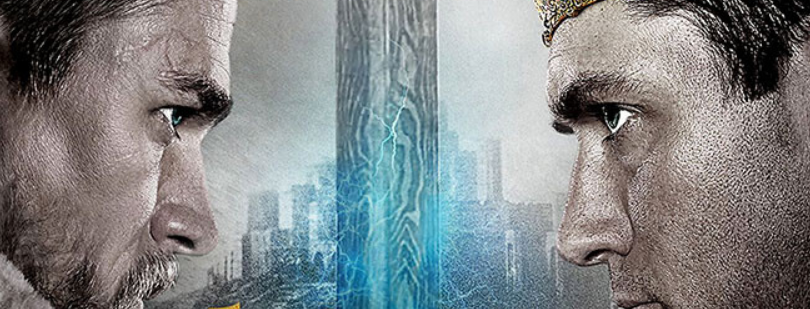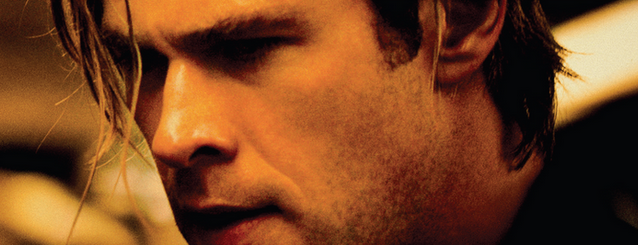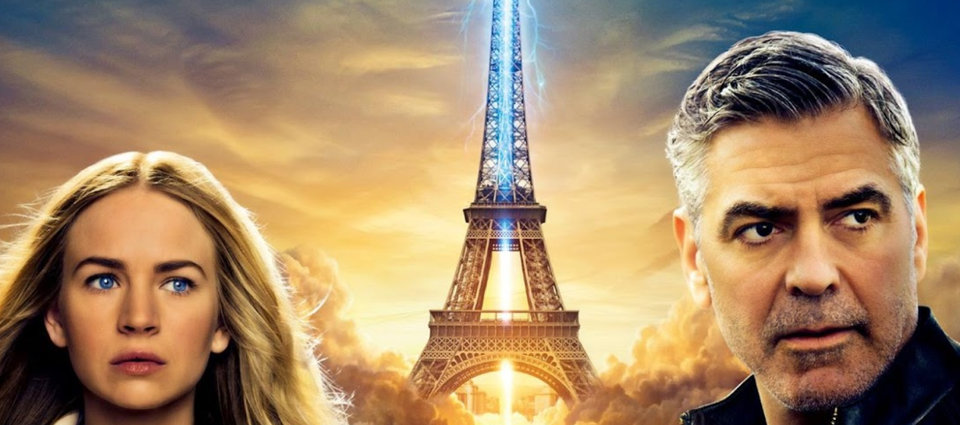King Arthur: Legend of the Sword
Warner Brothers decided they had to get on the cinematic universe train - yes, a King Arthur cinematic universe - only for it to derail itself in the messiest way.

Much like with Peter Pan, film producers keep coming back to the Arthurian legends like a dog returning to its vomit. Similarly, the quality of the adaptations varies wildly. Sometimes, you get films like John Boorman’s Excalibur which treat the old legend with reverence and dust it with cinematic magic. Other times, you get Clive Owen as a Sarmatian Roman cavalryman, galumphing around in the 5th Century, dispatching an invasion of Saxons.
And every once in a while, the material gets handed off to a director better known for fun tales of Cockney gangsters, geezers and assorted wide boys and then all bets are off. Advance and be recognised, Sir Guy of Ritchie. Forsooth, Warner Brothers and its collaborators shall shower you with $175 millions of budget and let you tinker with the screenplay to your heart’s delight.
Yes, once every ten years or so, the big thinkers in the studio system declare the time is nigh for King Arthur to ride again. This time around, it was Warner’s turn, and they’d been cooking up a variety of Arthurian projects for a while. Apparently, Bryan Singer was in the hot seat for an Excalibur remake for a while, and then Warner’s tried to cash in on the very, very brief fascination with Kit Harington during the height of Game of Thrones fever. In the end, they felt it unwise to risk a budget of $130 million on actors unproven at the box office and moved on.
In 2014, Warner’s had their head turned by the potential of a six-movie King Arthur Cinematic Universe (ugh) and spoke to Guy Ritchie, who’d long been kicking around his own Arthur script. I suppose it made commercial sense for Warner’s to attach a director with a solid commercial and critical record. His Sherlock Holmes movies made a combined billion dollars at the box office and his other output, while patchy, was more hit than miss. Add in Ritchie’s own style of dialogue and direction, and I can see the logic.
Assorted and sundry actors were cast. Charlie Hunnam was hot following the success of Sons of Anarchy, Jude Law was ever-reliable, Djimon Honsou too, and add Eric Bana to round out what looks like a comparatively cost-effective cast.
King Arthur: Legend of the Sword (KALTS) begins with Camelot under a very Lord-of-the-Ringsian siege by the armies of evil warlock Mordred. King Uther Pendragon (Bana) tells his ambitious brother Vortigern (Law) to literally hold the fort while Uther gives it the maximum hero with Excalibur in hand. Uther slays Mordred but Vortigern later betrays him. Vortigern sacrifices his own wife for power, before killing Uther’s wife and then Uther. Arthur, son of the king, escapes on a boat to Londinium, where he is rescued and raised in a brothel.
During a lovely montage, Arthur grows up to be Charlie Hunnam and the head of a gang of ne’er-do-wells. But Vortigern takes time out from his busy schedule of building a sorcerous tower and oppressing Britons to hunt for him, after magic drains a lake and reveals a sword – Excalibur - plunged into stone. Vortigern consults some weird watery witch who tells him only the true king can pull the sword from the stone. Vortigern decides to round up all of the young men in the country and force them to try to take the sword.
Arthur ends up pinched by the Blacklegs, Vortigern’s enforcers, and taken to the sword. Since Arthur is at this point in the story an over-confident thuggish bully and crime lord, he pushes to the front of the queue, gets instructions from David Beckham, and fulfils the first part of his destiny by pulling the sword from the stone and, unable to contain its mystical powers, passes out. When he awakens, Vortigern delivers all the necessary exposition to make the story work. Magic sword, son of the king, powers, yadda yadda.
Elsewhere, a Mage – not Merlin, just a Mage – persuades one of Uther’s old lieutenants, Sir Bedivere (Honsou), a leader of the resistance, to help her. When Vortigern tries to have Arthur executed, Bedivere’s men rescue him with the Mage’s help. Arthur takes the next step on the Hero’s Journey by refusing the quest but because he has the hots for the Mage, decides to go on a quest to the Darklands to discover the truth about himself. He is assaulted by all the mystical wildlife on the way, but in the end, he remembers the fight and the demon knight that killed his father, but remains unable to control the sword.
Still, Arthur begins to lead the resistance against Vortigern. An attempted assassination fails and things go tits up during the escape when Arthur’s best friend is killed, although he does discover he can actually control the sword if the woman he lusts for is threatened. He beats up a horde of Blacklegs and he and most of his friends escape. As a result, he loses faith in his mission, throws the sword away, and is on the run when he encounters the Lady of the Lake who gives him the real Galadriel experience. You know, visions of an apocalyptic future, that kind of thing. Arthur repents, takes Excalibur back, and agrees to help the resistance again.
But Vortigern’s men have raided their hideout and given Arthur an ultimatum to surrender. Arthur hatches a plan of his own, involving psychotropic viper venom, and goes to meet Vortigern at his castle, where the Mage’s powers cause a honking great snake to kill all of Vortigern’s bodyguards. Arthur and Vortigern – now in his demon knight form again – battle and Arthur eventually claims the full power of the sword and defeats his evil uncle.
Then there’s the hook for the planned second movie, where Arthur pisses off the Saxons, builds the Round Table, and ennobles a bunch of his criminal buddies.
Overall, really not bad. Not great, either, but once again, the studio system conspires to make a technically impressive movie which lets itself down on the narrative front. I shouldn’t be surprised at this point.
When you sit down with a Guy Ritchie gangster movie, you know exactly what you’re going to get. It’s going to have larger-than-life geezers playing off each other as part of a gallery of rogues, villains and eccentrics; they’ll all spout funky, zingy dialogue; the action will rattle along with its own demented energy; the story is likely to be told in a non-linear fashion; Ritchie will utilise some unorthodox camera angles to highlight disorientation or desperation. Ritchie’s gangster movies – Lock, Stock; Snatch; Rocknrolla and The Gentlemen- all utilise these techniques and I’m fond of all of these movies. Revolver didn’t work, but maybe I’ll find a space for Revolver in another column.
Nonetheless, KALTS uses all of the above methods in telling its story, and I’ll be damned if it doesn’t work, for the most part. You can see literally every part of the screenplay which Ritchie got his hands on and moulded into a familiar shape. Here’s the rub: every scene which didn’t get a huge review at the hands of the director sticks out as coming from a totally different genre. It’s trying for the griminess and grittiness of peak Game of Thrones and misses, due to a lack of humour and humanity. For every scene or sequence which resemble Dark Ages The Gentlemen, you get another which is po-faced, strait-laced utterly uninspired fantasy. You get a scene where Arthur tells Bedivere exactly what’ll happen if they meet with the great lords who aren’t aligned with Vortigern – a playful scene which messes around with timelines and setting, and you get a dull, shapeless scene of the Mage dispensing exposition for the benefit of the viewer.
Sadly, I don’t think the story could work if it was entirely a Dark Ages The Gentlemen. Ritchie’s gangster movies are fast-paced, twisty things where the interplay of character is as important as the plot. It’s what makes them rewatchable and prevents them from ageing horribly. KALTS is a plot-heavy fantasy blockbuster with almost no time or consideration for character, and this generates a problem all of its own.
Arthur, as written, directed and played, is a self-centred, horny dickhead. He is not notably brave. He does not care overmuch for the plight of ordinary people. He’s impatient and chauvinistic and utterly self-interested and beyond arrogant. This is not the Arthur of legend. He only chooses to fully risk the power of Excalibur when the Mage, his ‘love interest’, is threatened. All of his friends can die at the hands of the Blacklegs, but touch a girl? Now he’ll do the thing he fears. And at the pivotal moment at the end of the second act – the so-called ‘All Is Lost’ moment, after the death of his best friend, after he has gained full control of Excalibur, he tosses the sword away and runs. Not my King Arthur.
So, on the one hand, we have a story which cannot decide what genre it is and a main character who isn’t noble enough to be a king. Yeah, I see why people weren’t particularly interested in KALTS.
But it’s definitely worth watching outside of its flaws. When it’s being all gangstery, it’s great fun. Ritchie’s dialogue still works despite being anachronistic. The performances are mostly decent. Hunnam isn’t a good enough actor to make this petulant Arthur charismatic enough to overcome the flaws in how he’s written. Jude Law doesn’t really have enough fun as Vortigern – fantasy antagonists are allowed to chew the scenery and show off their flair. Law doesn’t, but he could’ve and maybe should have. Honsou deserves a meatier role than the one they gave him.
As befits a big-budget production, there are tons of special effects and action sequences. The film is staged, set and lit particularly well. It looks and feels big. The VFX is universally of a high standard. Highlights include the demon night Uther and Arthur battle – he’s huge and spectacular and feels like he was transplanted in from a Dark Souls game. He has that hefty video game boss quality to him and is a worthy adversary to defeat. There are moments, after Arthur learns to control Excalibur and takes on hordes of mooks, that have a real heft and punch to them. Excalibur is meant to have power and the SFX and directorial choices truly show us this. Those two Excalibur scenes are both awesome and over the top and I’m here for nonsense like this.
Finally, there a peculiar dedication to anachronism can be seen throughout the film. When is it set? Why is there an East Asian guy running a martial arts dojo in Dark Ages Londinium? Why is everyone talking like it’s 2010? Why does all the architecture and technology seem like it comes from four to five hundred years later? I was half-expecting to hear The Prodigy on the soundtrack (pour out a forty for my homie, Plunkett and Maclean). The anachronisms are jarring, but not seriously so. An irritation, no more.
Credit where it’s due: when this film works, it’s fun and energetic and spectacular. But it only works about half the time. Warner’s wanted too much from this film. They dreamed too big and instead of delivering a huge, coherent King Arthur adaptation, they suckered themselves into telling a poor version of the classic legend, just to set up a fucking cinematic universe. What a mess. What a shame. Idiots.



